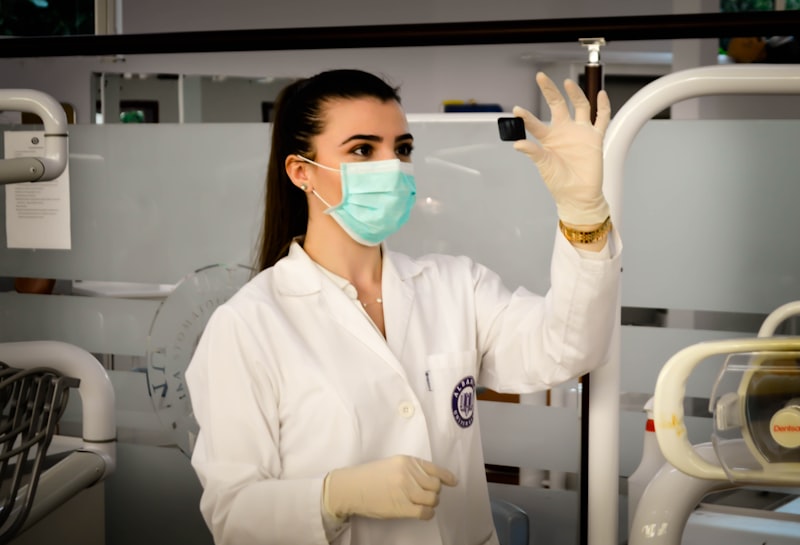Have you ever wondered about alternative medicine and its potential benefits? In a world where conventional treatments often dominate, alternative medicine offers a refreshing approach to healing. From acupuncture and herbal remedies to yoga and meditation, these practices delve deep into holistic health.
Imagine a world where your well-being isn’t just about treating symptoms but nurturing your body’s natural balance. Alternative medicine does just that—it focuses on the whole person, addressing not only physical ailments but also mental and emotional health. This holistic approach aims to harmonize the mind, body, and spirit, promoting overall wellness.
One of the key principles of alternative medicine is personalized care. Unlike one-size-fits-all approaches, alternative therapies are tailored to individual needs. Whether you’re seeking relief from chronic pain, stress management techniques, or support for a specific health condition, alternative medicine offers diverse options.
Take acupuncture, for example. Originating from ancient Chinese medicine, acupuncture involves inserting thin needles into specific points on the body to stimulate energy flow. This practice is believed to restore balance and alleviate various ailments, from migraines to digestive issues.
Herbal medicine is another cornerstone of alternative health. Plants like ginger, turmeric, and ginseng have been used for centuries for their medicinal properties. These natural remedies are often gentle on the body and can complement conventional treatments.
Moreover, practices like yoga and meditation aren’t just exercises—they’re powerful tools for relaxation and inner peace. Yoga, with its poses (asanas) and breathing techniques (pranayama), enhances flexibility and reduces stress. Meditation, on the other hand, cultivates mindfulness and promotes mental clarity.
Alternative medicine isn’t about dismissing modern treatments but expanding the toolkit for health and wellness. It encourages a proactive approach to self-care, empowering individuals to take charge of their health journey. By embracing alternative therapies, many people find relief, resilience, and a renewed sense of vitality.
In essence, alternative medicine invites us to explore beyond the conventional, tapping into ancient wisdom and modern research to optimize health outcomes. Whether you’re curious about a specific practice or seeking a holistic approach to well-being, alternative medicine offers a pathway to discover and nurture your body’s innate healing abilities.
The Rise of Alternative Medicine: Healing Beyond Traditional Practices
One of the key drivers behind the rise of alternative medicine is its focus on treating the whole person rather than just the symptoms of a disease. Unlike traditional medicine, which often targets specific ailments with pharmaceuticals or surgery, alternative medicine seeks to restore balance and enhance overall well-being. This holistic approach resonates with individuals looking to take an active role in their health by exploring methods like acupuncture, herbal remedies, and meditation.
Take acupuncture, for example. Originating from ancient Chinese medicine, acupuncture involves inserting thin needles into specific points on the body to alleviate pain and promote healing. While some may initially question its effectiveness, many find relief from chronic conditions such as migraines or back pain through regular treatments. It’s like unlocking the body’s natural healing abilities by tapping into its energy pathways, akin to adjusting the settings on a finely tuned instrument.
Herbal remedies also play a significant role in alternative medicine. Plants like echinacea for immune support or turmeric for its anti-inflammatory properties have been used for centuries in traditional healing practices across cultures. The resurgence of interest in these natural remedies stems from a desire to avoid synthetic chemicals and embrace sustainable, plant-based solutions that have stood the test of time.
Moreover, alternative medicine encompasses practices such as yoga and meditation, which not only promote physical health but also mental and emotional well-being. These practices emphasize mindfulness and relaxation, offering a counterbalance to the stress and fast-paced lifestyles of today.
Unlocking Nature’s Pharmacy: Exploring Alternative Medicine Options
Have you ever considered that the answer to many health issues might lie in nature’s own pharmacy? Alternative medicine, often derived from natural sources like plants and herbs, offers a fascinating array of options beyond conventional treatments. These remedies have been used for centuries by different cultures around the world, each with its unique healing traditions.
Imagine a world where ailments are treated not just with pills and prescriptions, but with remedies cultivated straight from the earth. Plants like echinacea, known for its immune-boosting properties, or turmeric, celebrated for its anti-inflammatory benefits, are just a glimpse into the diverse arsenal of alternative medicine.

What makes these natural remedies so compelling? Unlike synthetic drugs, they often come with fewer side effects and are gentler on the body. Take lavender, for instance, cherished not only for its calming scent but also for its ability to alleviate anxiety and promote relaxation. It’s like a gentle embrace from nature itself, soothing both mind and body.
Exploring alternative medicine isn’t just about seeking unconventional treatments; it’s about embracing a holistic approach to health. It’s about tapping into centuries-old wisdom that respects the interconnectedness of our physical and mental well-being. From acupuncture, which targets energy flow in the body, to Ayurveda, a comprehensive system of medicine from India, these practices offer a rich tapestry of healing modalities.
In today’s fast-paced world, where stress and chronic conditions abound, alternative medicine provides a beacon of hope. It encourages us to pause, reconnect with nature, and explore treatments that honor the body’s innate capacity to heal. Whether you’re curious about herbal supplements, meditation techniques, or traditional healing practices, there’s a wealth of options waiting to be explored in nature’s pharmacy.
Unlocking the potential of alternative medicine isn’t just about finding a remedy; it’s about embarking on a journey of discovery—one that respects the wisdom of generations past and the promise of a healthier future.
This article aims to engage readers by highlighting the benefits and allure of alternative medicine while maintaining a conversational tone and incorporating elements like rhetorical questions, analogies, and metaphors to captivate interest.
From Acupuncture to Ayurveda: Diving Deep into Alternative Healing
Acupuncture, originating from Traditional Chinese Medicine (TCM), involves the insertion of thin needles into specific points on the body. This practice aims to stimulate energy flow (Qi) along pathways known as meridians, addressing ailments ranging from chronic pain to digestive issues. It’s akin to unclogging a blocked drain, allowing energy to flow freely and restore the body’s natural equilibrium.
On the other hand, Ayurveda, originating from India, emphasizes a personalized approach to health based on one’s dosha—Vata, Pitta, or Kapha—which represent different elemental energies within the body. Through a combination of dietary adjustments, herbal remedies, yoga, and meditation, Ayurvedic practitioners seek to prevent and treat diseases by harmonizing the mind, body, and spirit.
Both acupuncture and Ayurveda share a fundamental belief in the body’s innate ability to heal itself when given the right support. They view health not merely as the absence of disease but as a state of optimal well-being achieved through natural, non-invasive methods. This holistic perspective resonates with many seeking alternatives to pharmaceutical interventions and invasive procedures.
Imagine acupuncture as recalibrating a complex instrument, fine-tuning its mechanisms for optimal performance. Similarly, Ayurveda can be likened to gardening—cultivating balance and nurturing health through careful attention to individual needs and environmental influences.


These alternative healing practices offer profound insights into health and wellness, drawing from centuries-old wisdom that continues to inspire and intrigue in today’s modern world. Whether you’re exploring avenues beyond conventional medicine or integrating complementary therapies into your health regimen, acupuncture and Ayurveda present compelling options rooted in centuries of practice and profound understanding of the human body.
Holistic Health Revolution: Embracing Alternative Medicine Techniques
Alternative medicine encompasses a wide array of modalities, each offering unique benefits tailored to individual needs. From acupuncture and herbal medicine to yoga and mindfulness practices, these techniques focus on addressing root causes rather than just alleviating symptoms. They empower individuals to take charge of their health through lifestyle changes and natural remedies, promoting long-term well-being.
One of the cornerstones of alternative medicine is its emphasis on prevention. Rather than waiting for illness to strike, practitioners encourage proactive measures such as balanced nutrition, regular exercise, and stress management. By nurturing the body’s innate healing abilities, holistic approaches aim to create an environment where health thrives naturally.
But what makes alternative medicine so appealing? It’s the personalized care and holistic perspective that resonate with many. Unlike conventional medicine, which often treats specific ailments in isolation, holistic practices consider the whole person. They recognize that physical health is intertwined with emotional and spiritual well-being, fostering a deeper understanding of health as a dynamic equilibrium.
Imagine a healthcare approach that not only targets symptoms but also enhances overall vitality and resilience. It’s like tending to a garden, nurturing the soil to ensure vibrant blooms year after year. Alternative medicine offers this nurturing touch, supporting the body’s capacity to heal and maintain balance.
As this holistic health revolution continues to evolve, more individuals are exploring these alternative paths to well-being. Whether integrating acupuncture for pain relief, practicing meditation for stress reduction, or adopting herbal remedies for immune support, people are discovering the transformative power of holistic health practices. It’s about embracing a more natural, interconnected approach to health—one that celebrates the unity of body, mind, and spirit in achieving optimal wellness.
Frequently Asked Questions
What are the most popular types of alternative medicine?
Discover the most popular types of alternative medicine with our concise guide. From acupuncture and herbal supplements to chiropractic care and meditation, explore effective holistic approaches to enhance your well-being.
Is alternative medicine safe and effective?
Learn about the safety and effectiveness of alternative medicine in this concise FAQ. Discover insights into its benefits and risks, helping you make informed decisions about your health.
What conditions can alternative medicine treat effectively?
Learn about the conditions that alternative medicine can effectively treat. Discover how alternative therapies address specific health issues, offering complementary options for various ailments and promoting holistic well-being.
What is alternative medicine and how does it differ from conventional medicine?
Alternative medicine refers to unconventional practices used in place of conventional medical treatments. It often emphasizes natural remedies and holistic approaches to health, focusing on treating the root causes of ailments rather than just symptoms. In contrast, conventional medicine relies on scientifically proven methods, pharmaceuticals, and procedures that are widely accepted within the medical community.
How can I find a qualified alternative medicine practitioner?
Learn how to find a qualified alternative medicine practitioner with our concise guide. Discover essential tips and resources to help you choose a practitioner who meets your needs and ensures safe, effective treatment.


